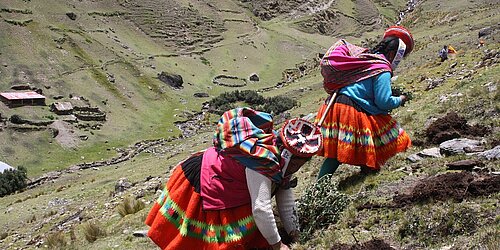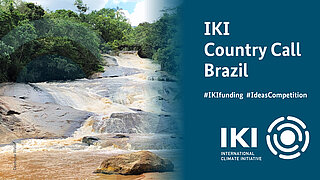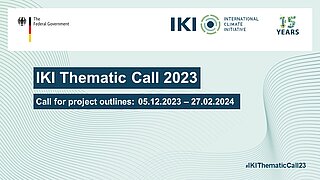Copyright: International Climate Initiative (IKI)
The German Federal government is redefining the future design of the International Climate Initiative (IKI) and consequently an important part of Germany's international climate finance.
With this cross-ministerial funding programme, coordinated by the Federal Ministry for Economic Affairs and Climate Action (BMWK) since 2022 and implemented in close cooperation with the Federal Ministry for the Environment, Nature Conservation, Nuclear Safety and Consumer Protection (BMUV) and Federal Foreign Office (AA), the German Federal government is supporting developing and emerging countries in ambitiously shaping and implementing climate change mitigation and biodiversity conservation.
The electrification of local public transport in Indonesia, the restoration of mangrove forests in Mexico or the introduction of energy-efficiency standards for climate-friendly refrigeration plants in southern Africa are just three examples of the diverse range of IKI projects that are advancing climate action and biodiversity conservation worldwide.
The IKI is a vital part of the international climate finance commitments of the German government and has, to date, approved more than 1,000 projects dedicated to climate and biodiversity across more than 150 countries globally. The cumulative funding for these initiatives amounts to approximately EUR six billion.
IKI Strategy 2030
The three ministries are presenting the new “IKI Strategy 2030” in the 15th anniversary year of the funding programme’s inception.
The Federal government will continue to support and promote socio-ecological transformation in emerging and developing countries with this cross-ministerial funding programme. The IKI promotes projects in four funding areas
- mitigation of greenhouse gas emissions,
- adaptation to the impacts of climate change,
- preservation and restoration of natural carbon sinks and
- conservation of biodiversity. The mitigation funding area takes up most of the funding, accounting for around 50% of the total.
Simultaneously, the funding programme systematically takes into consideration the wide range of interactions and potential synergies between the areas.
The IKI will place the main focus of its funding activities on 14 priority countries, with a majority in the Global South. These priority countries produce almost 50% of global greenhouse gas emissions and at the same time they are part of the 25 global biodiversity hotspots. This underscores the heightened effectiveness of IKI projects in this context, given the significant potential for mitigating greenhouse gas emissions, adapting to the impacts of climate change, and safeguarding biodiversity. Recognising the growing importance of Africa in international climate action, the IKI intends to expand and enhance its involvement in Africa in the coming years.
Successful climate change mitigation and biodiversity conservation to a great extent depends on suitable policy framework and regulatory policy for shaping the transformation. This is where the IKI plays a crucial role in supporting and accompanying the development of an ambitious climate policy framework in the partner countries to design the socio-ecological transformation. This is correspondingly a central starting point of the IKI strategy. In addition to the promotion of innovative approaches, the IKI will continue to scale up successfully tested approaches in the coming years, and make a significant contribution to the leverage of private investments in climate change mitigation and biodiversity conservation through incentive mechanisms.
In order to achieve the greatest possible leverage effect with the available funds, the IKI Strategy 2030 lists priority fields of action, which are the main focus of the work and funding. This prioritisation also comprises topics and sectors that have not been a focus to date or that will be addressed more intensively in the future. These include particularly
- the decarbonisation of industry,
- the mobilisation of private investments for climate change mitigation and biodiversity conservation as well as
- the topics of climate & security and
- the contribution to the implementation of the Kunming-Montreal Global Biodiversity Framework, which was adopted in 2022.
The impact of IKI’s work under the new strategy will be prominently showcased at the UN Climate Change COP28 in Dubai, UAE. This will include the unveiling of a new international ideas competition with a volume of up to EUR 320 million, among other significant topics.


